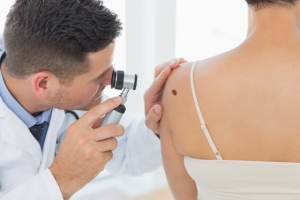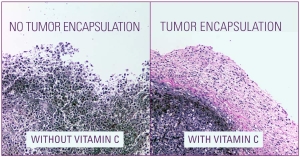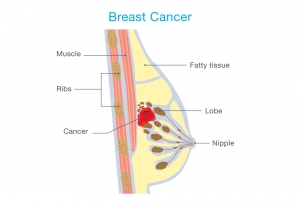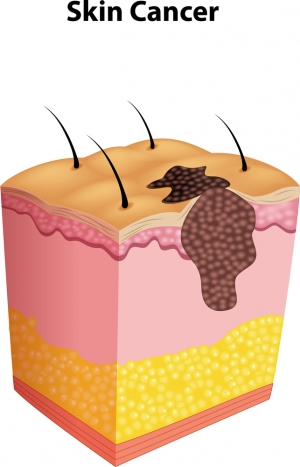In our previous Health Science News Page, we discussed some of the physiological changes that women face throughout their lifetimes such as puberty, menstruation, pregnancy, lactation, and menopause. A woman’s body needs extra nutritional support during these physiological transitions because her cardiovascular, endocrine, nervous and immune systems face different challenges than men due to the fluctuating hormones at different stages of life. In addition to heart disease and cancers, women are more often diagnosed with autoimmune diseases, arthritis, osteoporosis, and depression. Therefore, it is crucial to provide appropriate nutritional support to ensure the optimum function of the cells building these systems in a woman’s body.
In addition to several aspects of the empowerment of women on International Women’s Day on March 8th, we would like to bring up a largely unrecognized issue of the rising rates of chronic health conditions in women. Did you know that many health issues affect more women than men?
February is national cancer prevention month. The “War on Cancer” declared by U.S. President Nixon more than 5 decades ago is still going on and cancer remains the second leading cause of death worldwide. The World Health Organization’s International Agency for Cancer Research has projected that cancer diagnosis will increase by 75%-90% by the year 2030. While we understand more about cancer development and progression, the treatment has not changed much from the standard trio-surgery, chemotherapy, and radiation. Many of the chemotherapy drugs are labeled as carcinogens, yet they are still the mainstay of the treatment. Each of the current treatments is associated with inherent health risks and side effects, however, all remain a part of standard cancer therapy. Chemotherapy drugs kill the rapidly growing cells, and therefore they attack not only cancer cells but also healthy cells in the body (i.e., hair follicles, blood cells, intestinal lining cells). Due to such indiscriminate killing of all cells, the chemotherapy drugs cause widespread damage to the body. When a cell dies as a result of chemotherapy, its remains, called the cell debris, can be dangerous too. They can induce inflammation, which in turn can trigger other cancers and health problems. In one of the studies conducted at the Dr. Rath Research Institute, one group of mice was exposed to the breast cancer cells together with debris generated by the chemotherapy drug, docetaxel, and another group of mice was exposed only to breast cancer cells. The results indicated that the group of mice that was given the cancer cell debris after docetaxel showed significantly more pronounced tumor growth and aggravated inflammatory markers (TNF-alpha, IL-1) than the mice that were exposed only to breast cancer cells.
As the summer approaches, we become more concerned with sun exposure and skin cancers. Basal cell carcinoma, squamous cell carcinoma, and melanoma are the most common forms of skin cancers, and malignant melanoma is the most fatal of them all. Worldwide, one in three people are diagnosed with cancers that are classified under skin cancers.
Prostate cancer is one of the most common cancers affecting men worldwide and is the second most common cancer in men globally. It is a significant health concern, specifically in men 65 and older, as one in every eight men will be diagnosed with prostate cancer in their lifetime.
The prostate gland is a small walnut-shaped organ that produces seminal fluid, which in turn contains many enzymes including prostate-specific antigen (PSA) and contributes to the fluidity of semen. Increase in the PSA levels is one of the main indicators of either prostate cancer or benign prostatic hypertrophy. Although screening may help earlier diagnosis of prostate cancer, treatment options are still confined to surgery, hormone therapy, and radiation, with high cost, serious side effects, and limited efficacy.
October is designated as Breast Cancer Awareness month. With the exception of skin cancer, breast cancer is the most common cancer in women in the US, and about 1 in 8 women are likely to develop it during their lifetime. According to 2022 estimates, approximately 339,250 new cases of breast cancer will be diagnosed in women, and 2710 new breast cancers will be diagnosed in men in the USA. Although, breast cancer is rare in males it still contributes to 1% of all breast cancers and this number is rapidly increasing. Due to lack of awareness regarding male breast cancer, it is often diagnosed at a later stage and is therefore difficult to treat.
Vitamin D is a fat-soluble vitamin, sometimes known as the sunshine vitamin because the ultraviolet rays from the sun initiate its production in the skin. Vitamin D is a type of prohormone that is produced when cholesterol in the skin is exposed to the UV rays from the sun. Further processing in the liver and kidneys is an important step in the production of the active form of vitamin D called calcitriol. The two different types of vitamin D are D2 (ergocalciferol) present in plant-based products such as mushrooms, and D3 (cholecalciferol) present in animal products and fatty fish. Vitamin D3 is found to be twice as effective as D2 in raising the blood levels of vitamin D.
Despite advances in understanding the development of cancer and how it spreads, the method of cancer treatment has not changed much. For the past several decades the main treatment options for a cancer patient have been surgery, chemotherapy and/or radiation therapy. Although there are newer chemotherapy drugs available to treat cancers, the cancer death rate continues to rise. Each of the current treatment options is associated with inherent risks and side effects and most patients are submitted to some combination of these options.
After skin cancer, breast cancer is the most common cancer in women in the US, and about 1 in 8 are likely to develop it during their lifetime. According to the American Cancer Society, approximately 268,600 new cases of invasive breast cancer and 62,930 of noninvasive (in-situ) breast cancers will be diagnosed in the US this year.
Despite expensive treatment options and the availability of pharmaceutical drugs, the long-term outlook for curing breast cancer remains poor. While women are aware of breast cancer, very few take steps towards prevention other than mammogram screenings. Men can also develop breast cancer and one percent of all breast cancers are in males. However, male breast cancer is difficult to treat, which is mainly due to lack of awareness and a delay in diagnosis resulting in the cancer having already spread.
With the arrival of summer, people become acutely aware of exposure to the sun, the risk of skin cancers and the importance of the use of sunscreen. Skin cancer is the most common of all types of cancers in the USA and other developed countries. Worldwide, it accounts for more than 30% of all diagnosed cancers. Basal cell carcinoma, squamous cell carcinoma, and melanoma are the most common forms of skin cancers, and malignant melanoma is the most dangerous of all of them. According to the American Cancer Society, approximately 96,480 new melanoma cases are expected to be diagnosed in 2019 and melanoma will be attributed as a cause of death for 7,230 people. It is estimated that one in five people will develop skin cancer in their lifetime.









